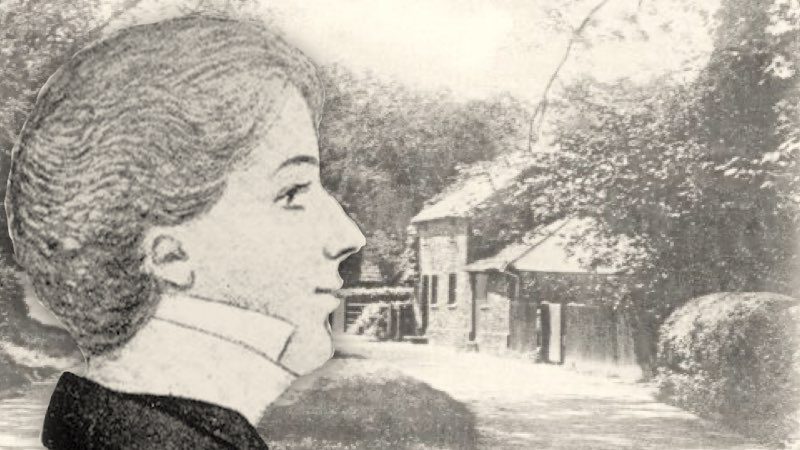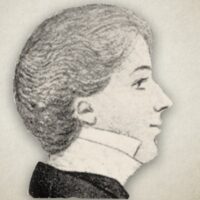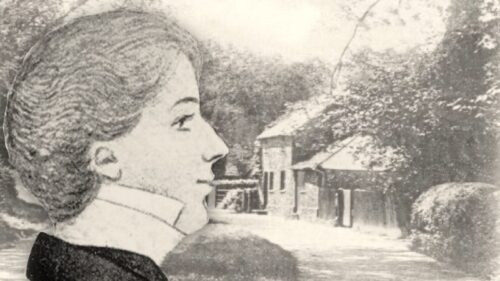
Opposition To The Truth
January 30th, 1830
Dear Brother,
Since I last wrote, I have preached in Abingdon Great Church, on Christmas evening, the only night in the year that it is lighted. I preached the truth, I trust, to a very crowded congregation, supposed to be (sitting and standing, who were able to get in) about 5,000 people. I pleased the believers, but very much displeased the carnally-minded, who were never so puzzled and confounded in their lives before. But even those who hate me and the truth acknowledge that the Bible has never before been so much read in Abingdon, or the Articles of our Church so much examined. I spoke the truth faithfully, and so as all could hear; but I had no idea that the gospel would have given so much offence. They have done nothing else since but talk about it. I allow there was much strong doctrinal matter in it, but I said no more than I fully believe.
On the Sunday after, a clergyman preached very much against me and the doctrines which I profess. Last week he published his sermon. He misrepresents my sermon so very much that, in my own defense, I am obliged to publish it, for which there is already a great demand. It is a very long sermon, from Matt. 1:21. The clergyman who preached against me is a wine-bibber, a great card-player, and a fox-hunter. They all acknowledge if I am not right, they are sure he is not.
The Lord is with me, for I really believe many are brought out of darkness through my preaching, and their lives manifest their faith as that which works by love and purifies the heart.
It is the truth that offends and disturbs Satan’s kingdom. The neighboring clergymen, who are in the dark, say of me, “Away with such a fellow from the earth; it is not fit that he should live.” Many hate, but some love me, and bless the day they first heard me. Some of the worst characters here have become decided Christians. They bring no charge against me except my views of religion; but they cannot gainsay them. Some say the Articles of our Church were buried until I brought them forth. My mind is not moved by the persecution, for I have every testimony that I am a minister of Christ, and I believe if He has a work for me to do, I shall do it, in spite of the devil and all his children. It is not coming near to the truth, it is not the letter of the gospel, that will convert men, but the Spirit. Make the Word of God your study. Pin your faith to no man’s views. I scarcely read any other book.
The people of Abingdon come over in large parties to hear what this troubler of Israel has to say. Though they say all manner of evil against me falsely, they find what I say “quick and powerful, and sharper than any two-edged sword.” Nature is not changed, the gospel is not changed, and Christ is not changed. What reason is there why they should not hate the truth now as much as in the time of the apostles? I never saw any fruits of my labors until I roused and disturbed the roaring lion. When, through the grace of God, I began to disturb his kingdom, I soon found that his children began to hiss; they want to know what has become of their forefathers. I came not here to judge them, but to preach the gospel. Beware of those who want to exalt man in any manner. The world and Satan hate believers. Read Paul’s Epistles; they beautifully throw light upon the other Scriptures. Listen to no one who wants to mix free will and free grace, the law and the gospel; for free will is a very stronghold of Satan’s. Listen to no one who talks about universal redemption. Remember Satan can transform himself into an angel of light, and his ministers into ministers of righteousness. The Pharisees hate me the most. I cut off all their rotten props, and all their fleshly devotion.
Yours very affectionately,
William Tiptaft.
William Tiptaft (1803-1864) was a Strict and Particular Baptist pastor. In 1831, he oversaw the construction of a chapel in Abingdon, where he remained as the Pastor until his death. John Hazelton wrote of him—
“William Tiptaft…exercised a ministry largely used to the awakening of sinners and to the driving of those who had only a name to live from the false confidences in which they trusted.” Joseph Philpot wrote of him—“He seemed ever ready to make any personal sacrifice for the glory of God or the good of His people. Time, money, health, strength, life itself, he did not consider his own. He felt he was but a steward who held them in trust, and who might be called at any hour to render an account of his stewardship. To live to God, to walk in His fear, to serve and please Him, to preach His truth, to do His work, to know and obey His will, and to be made a blessing to His people, seemed to be his daily end and aim. I have known men of greater natural abilities, of deeper and more diversified experience, of more shining pulpit gifts, of more enlarged views of Divine truth; but I have never seen anyone, whether minister or private Christian, who approached him in his own peculiar line of practical Godliness, carried out with undeviating consistency for the thirty-five years during which I had the pleasure and profit of his friendship. The Churches of truth needed an example of the practical power of the doctrines which they profess. A light, loose, Antinomian spirit had too much prevailed, and with a great deal of religious talking there was a very small amount of religious walking. But however low quickened souls or living Churches may sink, they have still a conscience made tender in the fear of God, and to this conscience William Tiptaft's keen, pithy remarks, and, above all, his Godly life and shining example, commended themselves."
William Tiptaft's Letters




